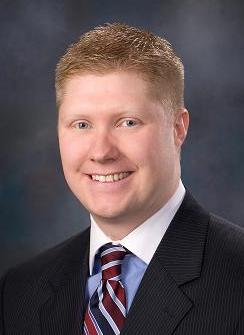As a member of the House Health and Welfare Committee, I have spent considerable time doing what is known as rules review. Idaho is unique in that the legislature is given the responsibility of reviewing and approving of administrative rules that are promulgated by executive agencies. For those that are familiar with rules, they are essential the guidelines for agencies are to implement law. They carry virtually the same weight as law, although they are subservient to statute. Anyway, H&W always has a ton of rules and this year was no exception. We are still knee-deep in them and I suspect at least a week or two away from completion. Some of the rules can be controversial because they are where actual cuts to safety net programs exist. I have been pushing back against the notion that the budgets need to be cut as much as proposed. My rationale is two fold: 1) Safety net programs are being demanded by Idahoans at rates that have never been seen and 2) Many of the cuts will actually result in higher costs to the state in the long term.
The short-term thinking has really got a lot of downside. While it may be politically convenient to only think about the upcoming budget year, it is often times done at the detriment to the future prosperity. Unfortunately this short-term thinking has really become the slogan of the 2010 Legislative Session.
In the House Education Committee the same sort of short term thinking can be found. We have seen potential ideas that could save the state long-term and improve education outcomes dismissed. The problem is that the germane committee, in this case House Education, does not have the authority to dictate where the spending priorities are for education. That responsibility rests with the Joint Finance and Appropriation Committee (JFAC). Needless to say, I have a lot of issues with this model. It says that all the policy work that is done in House Education is meaningless. I'd much rather JFAC tell us the amount of money there is to spend on public education and higher education and then give the germane committees (House and Senate Education) the responsibility for deciding how it is best divvied up.
In terms of my own work, I continue to work on a few pieces of legislation. Here are four of them briefly:
- Micro Enterprise Development Association - Creates the Micro Enterprise Development Association, which is given the authority to give loans to small business (less than 50 employees) of $35,000 or less. They are created as independent corporate body politic, which essentially means they are private, but still oversight from the state (the same as the Idaho Housing and Finance Association). I'll dedicate a full post to this idea next week.
- Online Education Endorsement - Requires that all teachers or persons employed in the capacity of instructing students in an online program have an online education endorsement. This is important because there are programs outside of Idaho that are contracting with Idaho school districts and there is very little assurance of quality or competency.
- Master Advancement Pilot Project - Establishes a voluntary and limited pilot project that allows students to go through the public education system at their own pace. Early completion of the k-12 curriculum can earn a student a scholarship to be used at an Idaho public post-secondary institution. This is really about putting incentive into education.
- Homeless Shelter Temporary Sales Tax Exemption - Provides non-profit homeless shelters a two-year sales tax exemption. While I tend to dislike sales tax exemptions, this is one that will serve a real need and has a defined duration. The cost to the general fund is $15,000, but the benefits to the state will be much greater. There is a hearing on this legislation next week on Tuesday.
I have a few other bills, but those are three that I am putting a lot of effort into at this point. As always, I look forward to your feedback.
